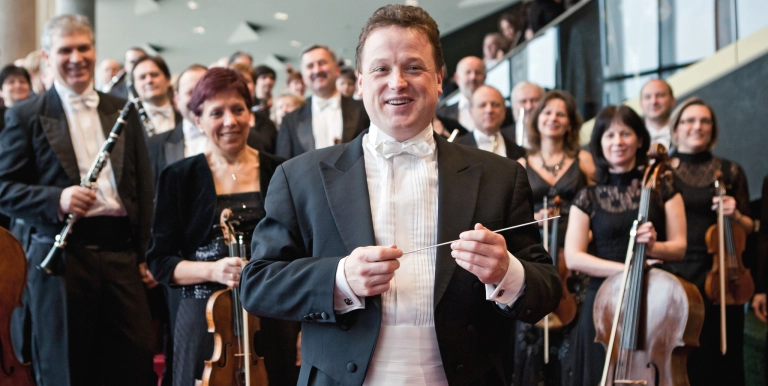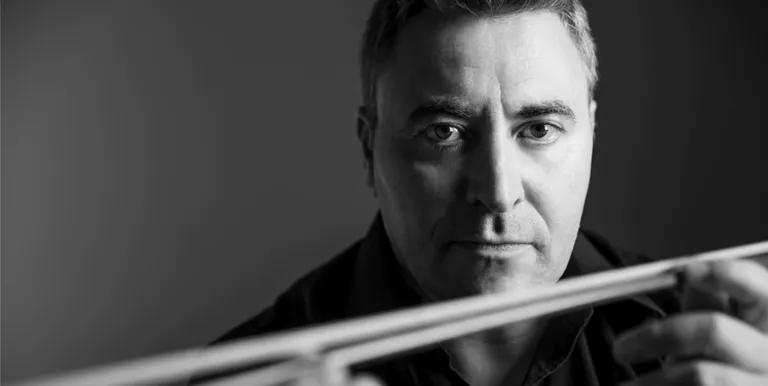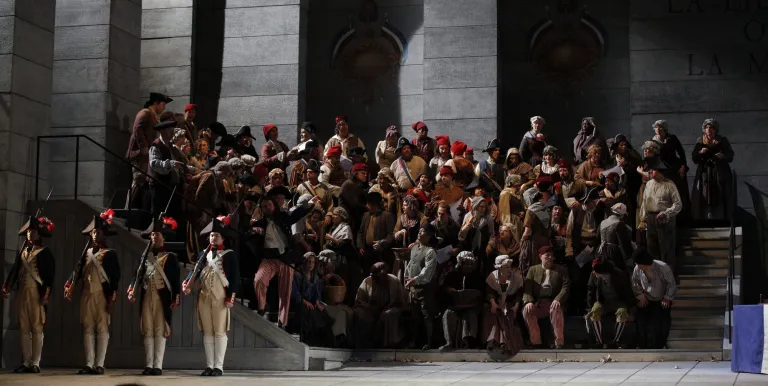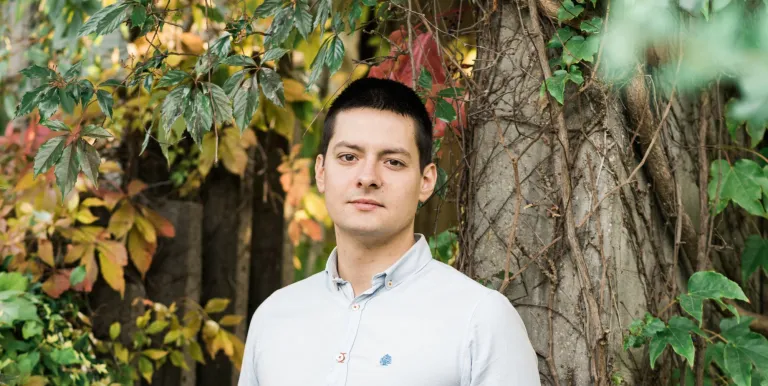Conductor:
Featuring:
Péter Tornyai
Monochrome
Michel van der Aa
Second Self
Beethoven – Cooper
Symphony No. 10 (unfinished)
Beethoven
Symphony No. 1 in C major, op. 21
Louis Andriessen
Beethoven’s Nine Symphonies
How does Louis Andriessen condense all of Beethoven’s symphonies into a single movement, and how does Péter Tornyai fill a composition, monumental in orchestration, form and its musical space, with a single musical gesture? Can a symphonic orchestra communicate freely with a string quartet and another symphonic ensemble that “keeps answering” from a recording, as in the Dutch Michel van der Aa’s piece?
Beethoven is known to have written nine symphonies. He had plans for a tenth, but could never write it. Is it possible to reconstruct this tenth symphony from his late sketches and notes? Barry Cooper used these to compile a hypothetical composition. Dispersed over time and not written for the same piece, not necessarily even for a symphony, these sketches were made parallel with the late string quartets. In addition to the first, and the possible “last,” the concert also presents Beethoven’s “complete” symphonies. The composition Louis Andriessen wrote in 1970 offers an essence of Beethoven’s symphonic work in a single movement.
Presented by: MR Music Groups, Palace of Arts
-
We wish to inform you that in the event that Müpa Budapest's underground garage and outdoor car park are operating at full capacity, it is advisable to plan for increased waiting times when you arrive. In order to avoid this, we recommend that you depart for our events in time, so that you you can find the ideal parking spot quickly and smoothly and arrive for our performance in comfort. The Müpa Budapest underground garage gates will be operated by an automatic number plate recognition system. Parking is free of charge for visitors with tickets to any of our paid performances on that given day. The detailed parking policy of Müpa Budapest is available here.










